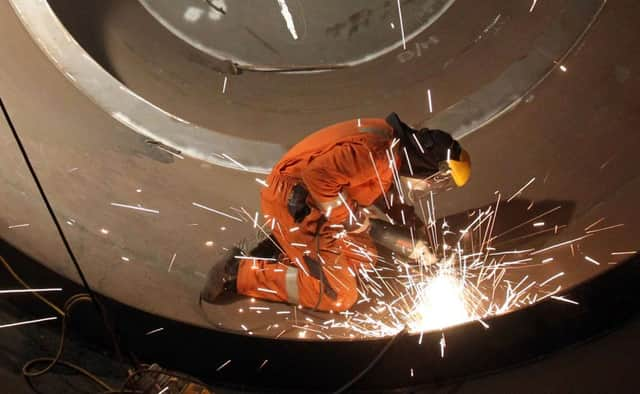Output growth hits 16 month high in January but global pressure looms


Produced for the bank by Markit, the report says businesses in the province were holding their own in the face of wider pressures.
Meanwhile, the rate of cost inflation remained marked but firms were only able to increase their output prices at a marginal pace.
Advertisement
Hide AdAdvertisement
Hide Ad“January’s incoming economic and financial market news had more than its fair share of doom and gloom, said Richard Ramsey, chief economist with the Ulster Bank in Northern Ireland.
“While business conditions have deteriorated within a global context, Northern Ireland’s private sector has reported a very encouraging start to the New Year.
“According to the Ulster Bank PMI, local businesses reported a marked pick-up in business activity, new orders and employment growth last month.
“The rate of private expansion was the fastest rate of growth in 16 months and matched the long-term average growth rate that pre-dated the downturn.”
Advertisement
Hide AdAdvertisement
Hide AdIn addition, he said the pace of job creation was above the UK average for the first time in 20 months.
“Hiring intentions are expected to remain strong given that backlogs of work (not commenced or completed) are rising at their fastest rate in 18 months.
“The only major disappointment was the decline in export orders, the first fall since August last year.
“This highlights a challenging environment for manufacturers including, until very recently, the strength of sterling against the euro.
Advertisement
Hide AdAdvertisement
Hide Ad“At an industry level, the services sector was the star performer in January, with activity expanding at its fastest rate in 14 months and at a faster rate than for the UK as a whole.”
However, Mr Ramsey said growth in the sector remained below the pre-downturn long-term average.
Order books and staffing levels within the sector also increased at faster rates than the UK average and above their respective long-term average growth rates that preceded the recession.
“The retail sector has rebounded from a disappointing fourth quarter with sales, orders and employment all on the rise,” he added.
Advertisement
Hide AdAdvertisement
Hide Ad“Indeed, retailers reported the fastest rate of employment growth of all sectors.
“Outside of services, construction firms continued to report rises in output and orders though at weaker rates than in December. Meanwhile, staffing levels expanded at their sharpest rate since May 2014. This largely reflects work undertaken in Great Britain and not Northern Ireland. Manufacturing remains the key area of concern. Local firms reported a modest rise in output in January but new orders slumped. Manufacturing orders have been flat or falling in four of the last five months. January’s decline represented the sharpest fall since September 2012.
“In light of this, it is not surprising that manufacturing reported job losses for the fifth month in a row.”